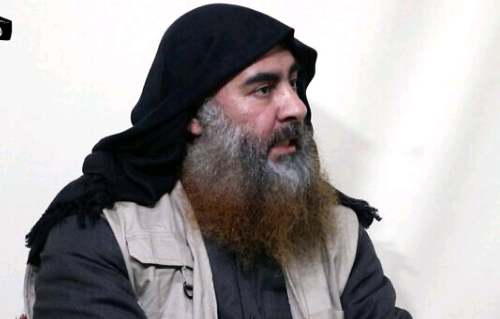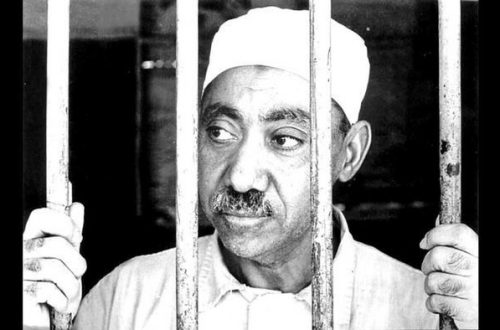This is a cross-post by Kyle Orton
An Islamic State (ISIS) commander was killed in Libya in mid-June, The Daily Beast reportedyesterday, after being “paraded … through the streets amid the taunts of onlookers, and then walked … to a gallows, where he was hanged.” This occurred in the eastern city of Derna, long ahotbed of Islamic militancy. The crucial thing about the “executed” ISIS operative is that he was an Iraqi and an FRE—a former (Saddam) regime element—who had been dispatched to Libya last year to oversee the cultivation of an ISIS branch.
The Beast reported the slain ISIS jihadist as “Abu-Ali al-Anbari,” but this is almost certainly a mistake: the senior ISIS official with the nom de guerre Abu Ali al-Anbari is ISIS’ governor of Syria. The al-Anbari referred to is likely Abu Nabil al-Anbari, a former policeman in Saddam Hussein’s regime, who, according to CNN, had spent time with ISIS’ leader Abu Bakr al-Baghdadi in an American prison. If that is true, Abu Nabil must have been imprisoned between January 31 and December 6, 2004, because that’s the only time al-Baghdadi spent in an American jail. If Abu Nabil was arrested at this time, it underlines the point I made yesterday: the FREs within ISIS were Islamist fanaticsbefore Saddam’s regime ended and joined ISIS early, when Abu Musab az-Zarqawi, the prince of the takfiris, was in command and “socialist infidels” (Ba’athists) were most unwelcome.
By CNN’s reporting, Abu Nabil was in Libya in September 2014, in time to arrange theannouncement of Wilayat Derna on October 3, 2014, a baya that was formally accepted by al-Baghdadi on November 13. Abu Nabil had put together the ISIS network in Libya by peeling away parts of al-Qaeda’s network, organized under the banner of Ansar al-Shari’a Libya (ASL), and by co-opting elements of the local criminal networks.
There is a great amount of uncertainty around the degree of control that ISIS has over its branches or affiliates. In order for a branch to be accepted into the ISIS franchise, however, ISIS “central” in Syria/Iraq must have “full command and control” of the group’s media operations,according to Aaron Zelin.
It is no secret that propaganda has been important to ISIS and one of the things it has been important in doing is bringing in foreign fighters. Though the foreign fighters have very little military skill, they provide ISIS two key advantages. First, as Stalin put it, quantity has a quality all its own. Given that ISIS’ foreign fighters are attracted primarily by ideology, they are prepared to blow themselves up and throw themselves into individually-hopeless situations that nonetheless yield benefits for ISIS’ cause. Which is the second advantage: with no connection to the local population and driven primarily by religious devotion—expressed as obedience to ISIS’ commanders—the foreign recruits to ISIS will carry out orders for anti-civilian atrocities without the brakes of kin and custom that might afflict a local recruit. This helps ISIS maintain control in the areas it occupies by providing a believable stick to accompany its provision of carrots like order and social services. Having been part of an intelligence service trained by the KGB, the FREs have played a key part in ISIS’ propaganda output.
As I documented in February, Libya is the most promising ground for ISIS outside the Fertile Crescent—with Yemen and Egypt vying for second place—but one should be very careful about overstating ISIS’ expansion in Libya. The claims by ISIS to control important towns like Sirte and Derna keep being disproven. The claim to control Derna last October was found to be false in January; ISIS only controlled “some neighbourhoods“. And renewed claims of control in Derna were falsified in June when ISIS was kicked out of the town overnight, something that could not happen if they held more than a few city blocks. ISIS did take over the small town of Nawfaliya in February, but that is the extent of ISIS’ urban conquests in Libya.
In addition to highlighting the role that the ex-Saddamists are playing in ISIS’ military planning and logistics well beyond the borders of Iraq and Syria, the other major story here is about Abu Nabil’s executioners: al-Majlis Shura al-Mujahideen (The Mujahideen Shura Council or MSC) in Derna. The MSC was formed in December 2014 by inter alia the Abu Salim Martyrs’ Brigade(ASMB) and ASL. In other words, it seems that al-Qaeda is the leading edge of the anti-ISIS cause in eastern Libya.
The political debate will go on, between those who believe that order would have been restored to Libya by the West allowing Muammar el-Qaddafi to massacre the inhabitants of Benghazi, and those of us who see NATO’s failure as a lack of intervention in the aftermath of Colonel Qaddafi to stabilize the situation. But the importance of the spread of the intra-jihadist warfare between the Islamic State and al-Qaeda to the North African coast should not be overlooked. One means of point-scoring for the Salafi-jihadists is to bring off spectacular terrorist attacks in the West. The chances that al-Qaeda and/or ISIS have placed sleeper agents among the desperate waves of refugees making their way into Europe from Libya have to be reckoned at pretty near certain.


